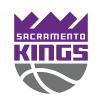The Deal
Kings get: Rights to Arturas Gudaitis and Luka Mitrovic
76ers get: Guard Nik Stauskas, forwards Carl Landry and Jason Thompson, a top-10 protected pick beginning two years after the conclusion of the Kings' obligation to the Chicago Bulls, two future pick swaps
Sacramento Kings: F

This is a truly historic salary dump. The biggest pure salary offload I can remember is the Golden State Warriors sending Andris Biedrins, Richard Jefferson and Brandon Rush to the Utah Jazz to create the cap room to sign future Finals MVP Andre Iguodala, a move that looks pretty inspired in hindsight. All three of those players were in contract years, so the Warriors shed a total of $24 million. Because both Landry and Thompson have two years left on their deals, the total package the Kings are sending out is almost $25 million in guaranteed salary. This season, it saves Sacramento $14.2 million under the cap, bringing the Kings' total space to somewhere between $23 and $25 million, depending where the cap falls and what they do with players on non-guaranteed contracts.
Naturally, what they're giving the 76ers to take on that salary is enormous in its own right. Beyond just Stauskas, the eighth pick of last year's draft, Sacramento is also giving up a top-10 protected first-round pick (according to Grantland's Zach Lowe) and swap rights in two other years. Those sound innocuous, especially with a team as bad as the 76ers are now, but years in the future, it's possible the trajectories of the two franchises could be very different. Ask the Brooklyn Nets, who dropped from 15th to 29th in this year's draft because of a rights swap with the Atlanta Hawks, how painful they can eventually become. In return, the Kings get the rights to a pair of second-round picks in last Thursday's draft, Gudaitis (taken 47th overall) and Mitrovic (the 60th and final pick), according to ESPN the Magazine's Pablo Torre.
It's possible the value on this trade might still pencil out on paper because Landry and Thompson are such onerous contracts. I have their value as slightly negative over the next two seasons while they make a combined $26-plus million. In a vacuum, that might be around the value of the picks the Kings gave up.
Unfortunately, Sacramento doesn't play in a vacuum. It plays in the Western Conference, which remains loaded. Since Vivek Ranadivé purchased the team, the Kings have been relentlessly and ineffectually chasing short-term upgrades to try to get competitive. That's partially how they got here in the first place. Two years ago, Landry was the shiny new free agent. Sacramento bought high on a 30-year-old undersized power forward, handing out a four-year contract. Two years and multiple injuries later, the Kings are giving up picks so they can sign the next Landry.
There are real-life considerations at play. Sacramento wants badly to put together a winning team in time for the opening of its new arena, the Golden 1 Center, at the start of the 2016-17 season. The Kings also hope to win to help keep star center DeMarcus Cousins happy, since it's never too early to start worrying about Cousins' free agency three years down the line.
Wishing and hoping, alas, aren't enough to make Sacramento competitive, especially in the West. Look around. There might be a couple of playoff spots open this year, but the Oklahoma City Thunder are sure to take one of them, the Jazz were one of the conference's better teams after the trade deadline and the Phoenix Suns just added Tyson Chandler. The Kings were already behind all of those teams, and it's hard to imagine the players they add with the cap space they've created making the difference.
In their efforts to dig out of a nine-year playoff drought (and counting), the Kings keep making things worse, borrowing against an increasingly distant future to chase smaller immediate returns. Until they break that cycle, it's hard to see the franchise's fortunes changing.
Philadelphia 76ers: B+

No GM is better positioned to take advantage of another team's desperation than Sam Hinkie. The bank of Hinkie was open extended hours on July 1, and the 76ers could reap the benefits far down the line.
There are a couple of factors that will determine whether this was a good trade for Philadelphia or a great one. The first is the development of Stauskas, who was wildly ineffective as a rookie. Drafted primarily on the basis of his shooting, Stauskas made just 32.2 percent of his 3-point attempts and 40.8 percent of his tries inside the arc. Given his poor defense, that made Stauskas unplayable for anything besides development purposes.
Fittingly, my SCHOENE projection system scores Stauskas' rookie season as most similar to Ben McLemore's campaign in Sacramento the year before. McLemore did make major strides in year two, and Stauskas' 10 best comps include success stories such as Gordon Hayward, Joe Johnson and Khris Middleton, so there's still hope here. At the same time, given his physical limitations on defense, it's possible Stauskas may never be anything more than a reserve. This could be a repeat of the Kings dealing Thomas Robinson before the rest of the league caught on that he was overdrafted.
The second factor is how quickly the Sixers start winning. If they're still in the lottery when the pick swaps come up, it's unlikely they'll do the team much good. It's only if Philadelphia has built a contender while Sacramento still languishes outside the playoffs that the 76ers will really reap the benefits. In a sense, then, this trade is Hinkie betting on his own team and against Sacramento. The latter, at the very least, has an excellent chance of paying out.
